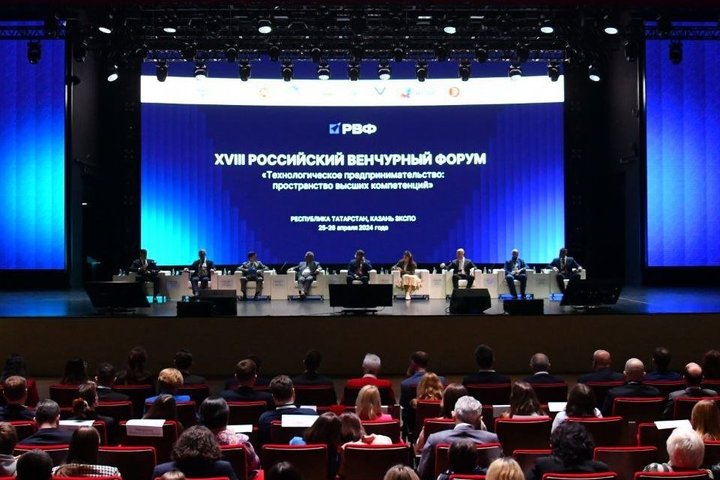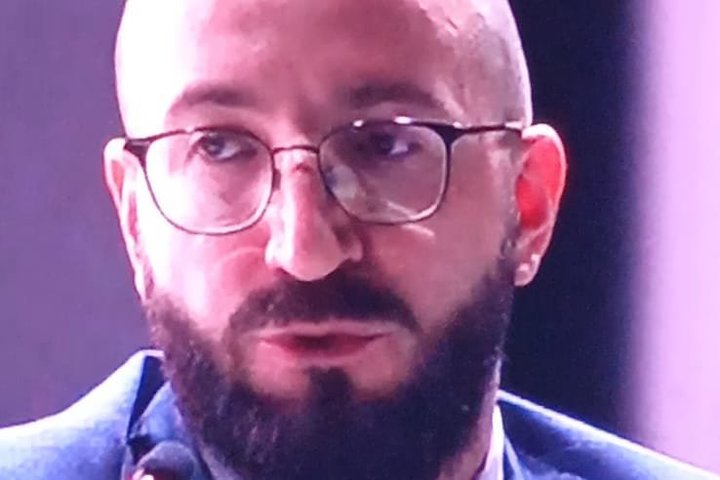Falkov looks at venture in Tatar style: ‘We need to support those who have advanced, otherwise we will lose them’
How to “cross” grants and venture financing, or How they agreed to support mature startup projects at RVF 2024
“I am not a big expert in venture capital markets, but what we will definitely do is completing the next [i.e. more mature] stages of startups," Valery Falkov, the head of the Federal Ministry of Education and Science, outlined the further trajectory of grant financing at the plenary session of the XVIII Russian Venture Forum in Kazan. So far, the federal project “University Technology Entrepreneurship Platform” has included early-stage startups, that is, those with no obvious commercial revenue. “The domestic venture industry should provide support for mature scientific research and development," Rustam Minnikhanov supported the change of priorities, asking time to provide benefits for venture investors along the way.
Trying it out
“People have money, and if they are interested in us, they could take the risk [to invest] in developments," Rustam Minnikhanov fervently urged his interlocutor Valery Falkov to stimulate the inflow of investments into technological entrepreneurship at RVF 2024 in Kazan. It was here that they first talked about reconfiguring the mechanism of grant support for university startups in order to involve venture capital from Russian funds in it. The discussion on this topic took place with the participation of key players in the venture capital market, not counting the political heavyweights — Minister of Science and Higher Education of Russia Valery Falkov and Rais of Tatarstan Rustam Minnikhanov. Moreover, the focus of the conversation turned out to be not tax preferences, although there is no way without them, but more fundamental things. How to combine support tools and venture investments and which projects will be interesting in the new reality?

Valery Falkov, the head of the Ministry of Science and Higher Education of Russia, considers it necessary to follow an evolutionary path without abandoning the existing ecosystem of technological entrepreneurship. He recalled that over the past few years, a large support infrastructure and a grant system have been deployed in the country, which gave every student the opportunity to try themselves in this field, and universities have technological partners. Within the framework of the federal project “University Technology Entrepreneurship Platform”, 30 universities from 82 regions of the country were covered by grants for the creation of new developments.
“It was important to give all interested students the opportunity to realise themselves in this unique field of human activity. To identify and develop relevant skills and competencies, an ecosystem has been created within the fedproject. It includes trainings, acceleration programmes, entrepreneurial Boiling Points, a network of university startup studios, Student Startup grant competition, university venture funds," the minister said.

For example, this year a record number of applications have been submitted for the Student Startup competition — 7,7 thousand. 2 thousand winners will be selected from them, who will be given 1 million rubles each to implement their technological idea. The results of the selection will be announced already at the end of July. According to the results of the previous selections, Tatarstan turned out to be the winner — 375 students received grants, Falkov said.
Stop playing with toys?
Attracting venture capital will inevitably lead to a shift in focus from beginner ideas to the field of real production and import substitution. This is exactly the experience gained in Moscow. Alexey Parabuchev, CEO of the Moscow Innovation Cluster Foundation, said that pooling resources helped attract 39,000 companies from all regions of Russia to the cluster for venture financing.

Business angels also “flew in” here. According to him, there was an explosive growth on their part — a quarter of the transactions were financed either directly or through syndicates. However, the success was supported by the state ruble. “A tool has been launched to compensate business angels for expenses," he said. Moreover, Parabuchev said that lending secured by intellectual property will be launched soon, which is hard to believe.
In the USA, it's a real winter — unlike our autumn frosts
Venture capitalists themselves expect to be able to manage new capital and revitalise the market. “In recent years, the Russian venture capital market has shrunk — there has been only a few deals over $10 million, and this, of course, is sadly small," complained Evgeny Borisov, partner at Kama Flow. “New investment tools are being discussed on the sidelines — new syndicates, new platforms, there are actually more of them than 3-5 years ago. And at the same time, there are no new deals, it's a paradox. What is the reason? In our opinion, the driver of transactions is professional capital and a manager who systematically invests in startups and attracts other interested parties to themselves. Therefore, it is necessary to have a certain number of independent private funds that always accumulate capital," he said.
However, the venture capital market has also deflated in America. “In the USA, it's a real winter — unlike our autumn frosts. All funds are showing negative profitability, while Russian ones have higher multipliers," the expert added.

Rustam Minnikhanov agreed that Russia in general and Tatarstan in particular continue to advance in the venture business. “It turns out that we can move on ourselves," he said, pointing to possible alliances with investors from the Islamic world and BRICS. Universities will remain a source of innovative technologies.
“Firstly, they did not have such a task, and secondly, there was not enough money for it. Today, if you look at the country, how many universities are interested in this, how many students have received and are receiving grants to develop their ideas. There has never been such support before, and we see that innovations can only appear in universities," Minnikhanov believes.
In the end, the participants of the discussion agreed that in the new reality the investor is interested in mature projects that will bring real benefits. “I'm not a big expert in venture capital markets, but what we will definitely be doing is completing the next [i.e. more mature] stages of startups. And supporting those who have advanced and become visible, otherwise we will lose them," Valery Falkov said at the conclusion of the plenary session.